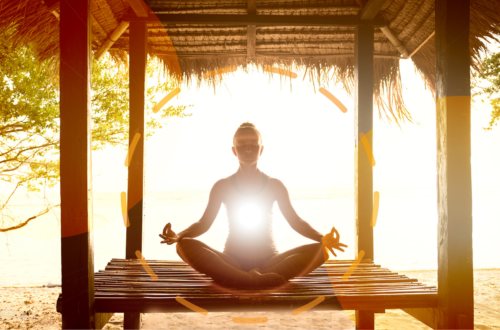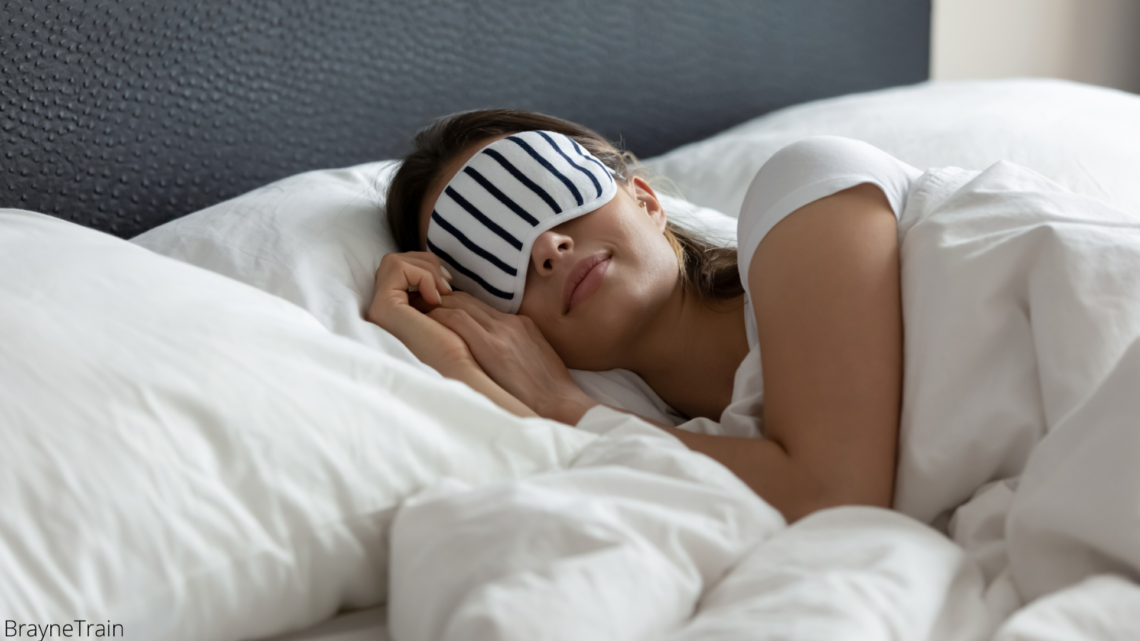
A 7-Step Bedtime Routine For a Great Night’s Sleep!
It’s no secret that a good morning routine can set the tone for the entire day.
But what about the nighttime?
A good bedtime routine can help you sleep better, and wake up more energetic, setting you up for a great day to come.
In this post, we have provided you with a great 7-step bedtime routine that can help you fall asleep better and wake up on the right side of the bed every single morning. So keep on reading!
How do you start a nightly routine?
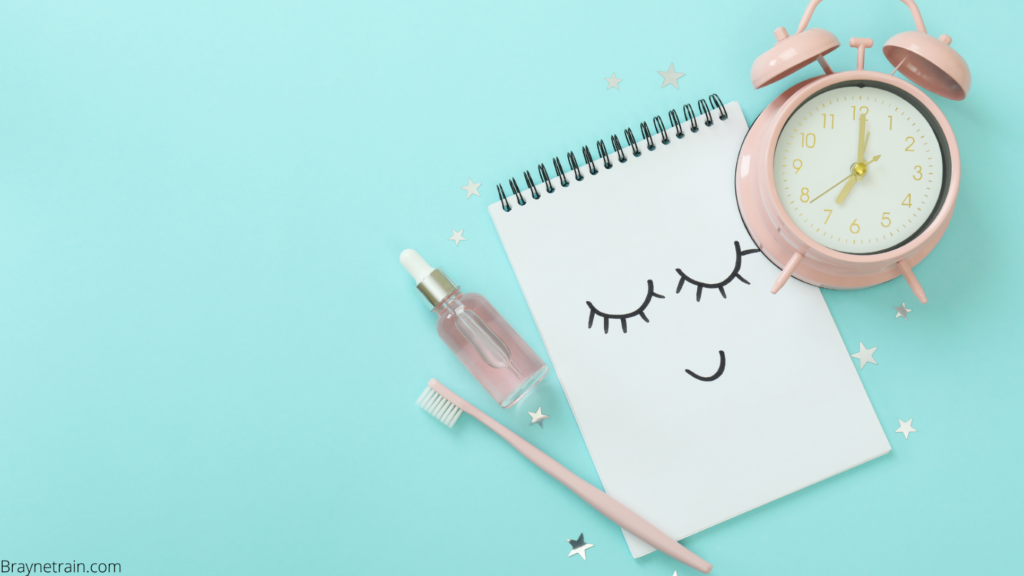
Step 1: Figure Out The Ideal Bedtime.
The Centers for Disease Control and Prevention (CDC) recommends a certain number of sleep hours for each age group.
Age Group Recommended Amount of Sleep
| Infants 4 months -12 months | 12 to 16 hours per 24 hours (including naps) |
| 1-2 years | 11 to 14 hours per 24 hours (including naps) |
| 3-5 years | 10 to 13 hours per 24 hours (including naps) |
| 6-12 years | 9 to 12 hours per 24 hours |
| 13-18 years | 8 to 10 hours per 24 hours |
| Adults | 7 – 8 hours per night |
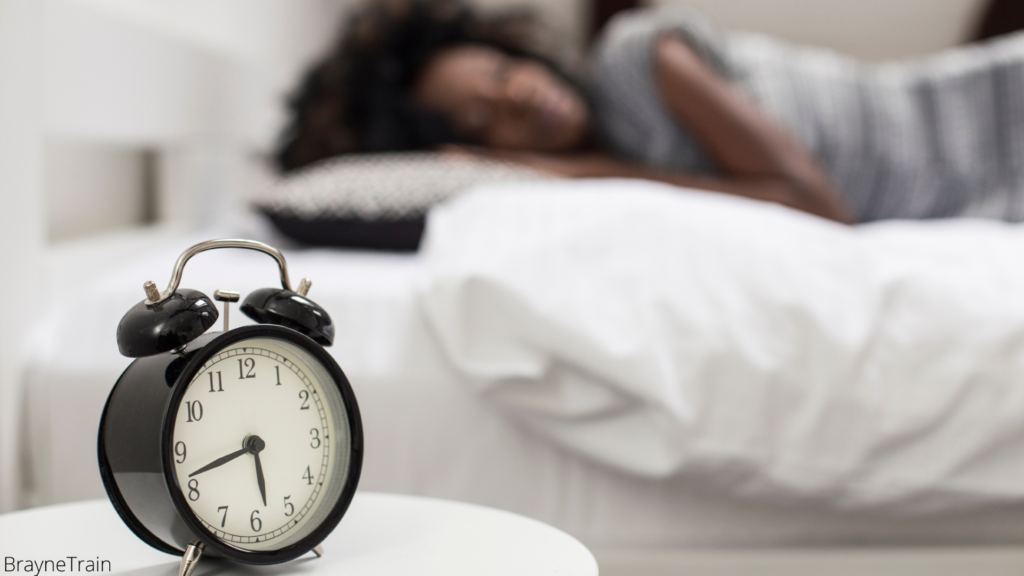
Although 7-8 hours of sleep is the general recommendation for adults, not everyone needs that much sleep.
Some people can function perfectly well on only 6 hours of sleep.
The best way to figure out how many hours of sleep you need is to track your sleep and pay attention to how you feel when you wake up.
Test out different bedtimes and see how you feel after a few days. Once you find the perfect number of hours for you, stick to it as best you can.
You can find the original chart for CDC’s Recommended Sleep time by clicking this link:
https://www.cdc.gov/sleep/about_sleep/how_much_sleep.html
Step 2: No Caffeine 6 Hours Before Bed.

Coffee has many health benefits, and it’s a great addition to your morning routine, however, caffeine is also a stimulant that can have an impact on your sleeping patterns.
It is important to limit your caffeine intake towards the end of the day and stop caffeine consumption at least 6 hours before bedtime.
Caffeine can stay in your system for several hours, so it is essential to be mindful of when you consume caffeine-containing beverages.
By making some simple changes to your caffeine consumption, you can improve your sleep quality and feel more rested during the day.
If you are a coffee lover and want to learn more about coffee's amazing health benefits click here.
Step 3: Eat a Light Dinner No Later Than 3 Hours Before Bedtime.
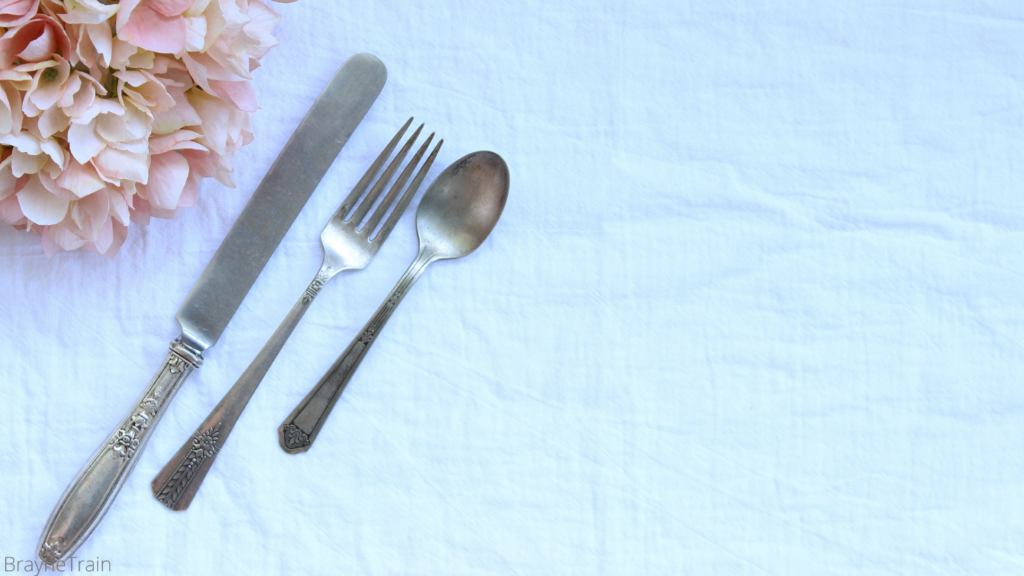
It’s generally recommended that you eat dinner no later than 3 hours before bedtime. This gives your body time to digest the food before going to bed.
Eating a heavy meal close to bedtime can interfere with sleep.
Also, keep your dinner light. A small portion of lean meat with salad or soup is a good option.
Avoid eating processed foods high in carbohydrates and sugar right before bedtime.
Step 4: Turn off all Electronics (TV/Cellphone, Computers) One Hour Before Bedtime.

Digital screens like TVs, computers, laptops, smartphones, tablets, or any other electronic devices emit Blue Light.
Blue light affects sleep by suppressing the release of melatonin, the hormone that makes us sleepy. In fact, studies have shown blue light suppresses melatonin more than any other light.
If you’re looking to get a good night’s sleep, it’s important to turn off all electronics and screens at least 1 hour before bedtime.
While blue light exposure during the day can actually be beneficial (by boosting alertness and productivity), blue light at night can adversely affect your sleep quality.
Step 5: Prepare the Room.
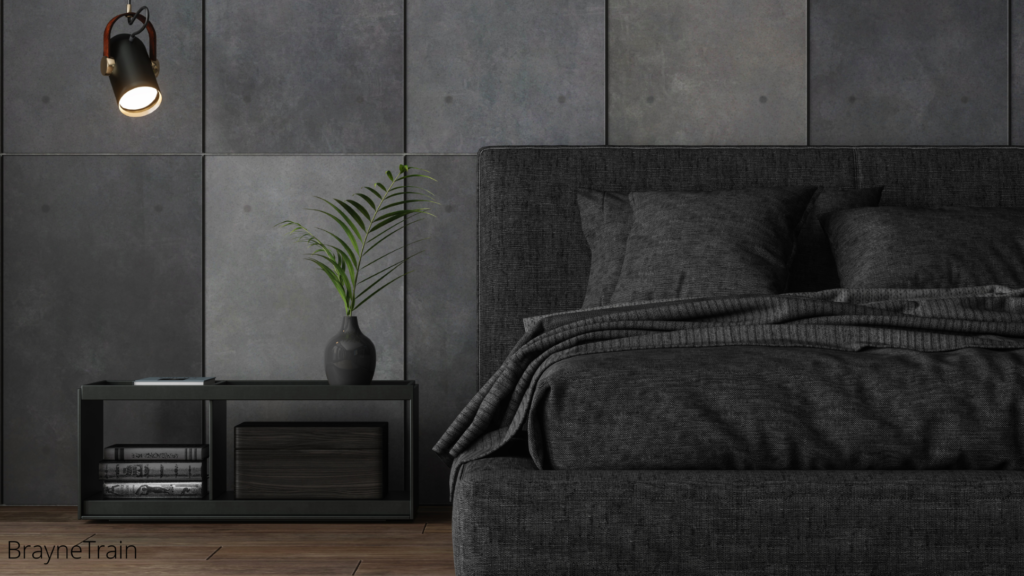
- Set room temperature to 65 degrees.
The Temperature of your bedroom can significantly impact the quality of your sleep. When your body temperature is cooler, it signals to your brain that it is time to sleep.
As a result, you will fall asleep more quickly and sleep more deeply. Studies have shown that sleeping in a room with a temperature of 65 degrees can lead to better sleep.
- Dim the lights
Dimming the room’s lights before your bedtime can help induce melatonin production and set the mood for sleep.
Melatonin is a hormone involved in regulating sleep-wake cycles, and exposure to dim light in the evening can help signal the body that it is time to wind down for the night.
In addition, dimming the lights can create a more calming and relaxing atmosphere, which can help you drift off to sleep more easily.
- White noise:
White noise is a great way to help you sleep better, and it can block out unwanted noise and help you focus on sleep.
There are many ways to create white noise, such as using a fan or a white noise machine. You can also find white noise apps that can be played on your phone or tablet.
Bedtime is the perfect time to use white noise to help you drift off to sleep. Start the white noise at a low volume and slowly increase it as you get sleepy.
Step 6: Journal & To-Do List
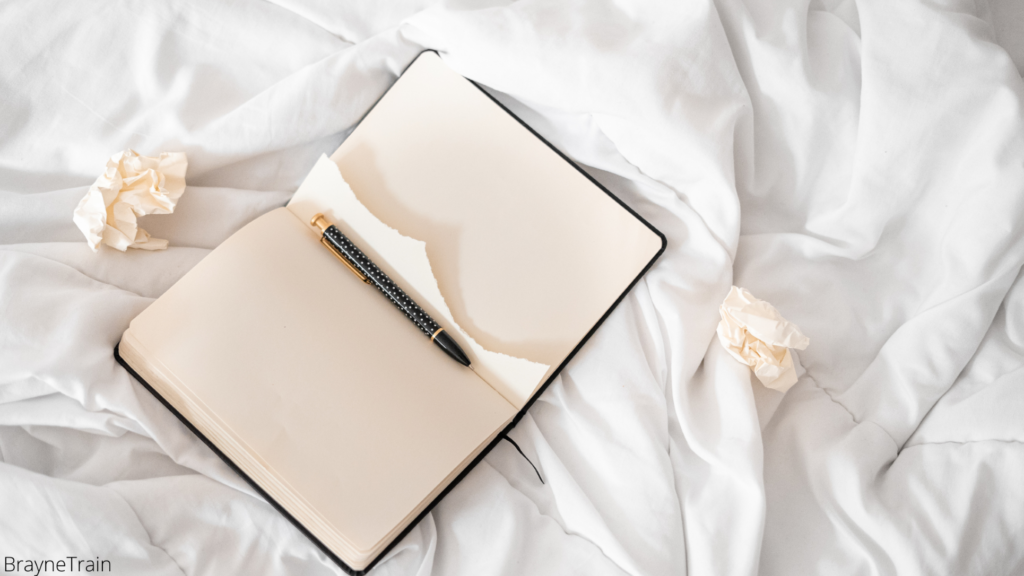
Journaling
Journaling before Bedtime is a great way to help reduce stress and improve sleep.
By taking 10-15 minutes to write down your stresses and worries, you can help clear your mind before going to Bed.
This can allow you to sleep more soundly, as you will not be worrying about these things overnight.
To-Do List:
There’s nothing worse than lying in bed at night, trying to fall asleep, while your mind races with everything you have to do the next day.
To-do lists can be a helpful way to ease your mind and reduce stress before sleep, so you can fall asleep faster.
Before you go to bed, take a few minutes to write down everything you need to do the next day.
This will help you clear your mind and feel more prepared for the day ahead. Then, when you wake up in the morning, you can simply refer to your list and start ticking off tasks.
Step 7: Meditate/Visualize/Affirmations
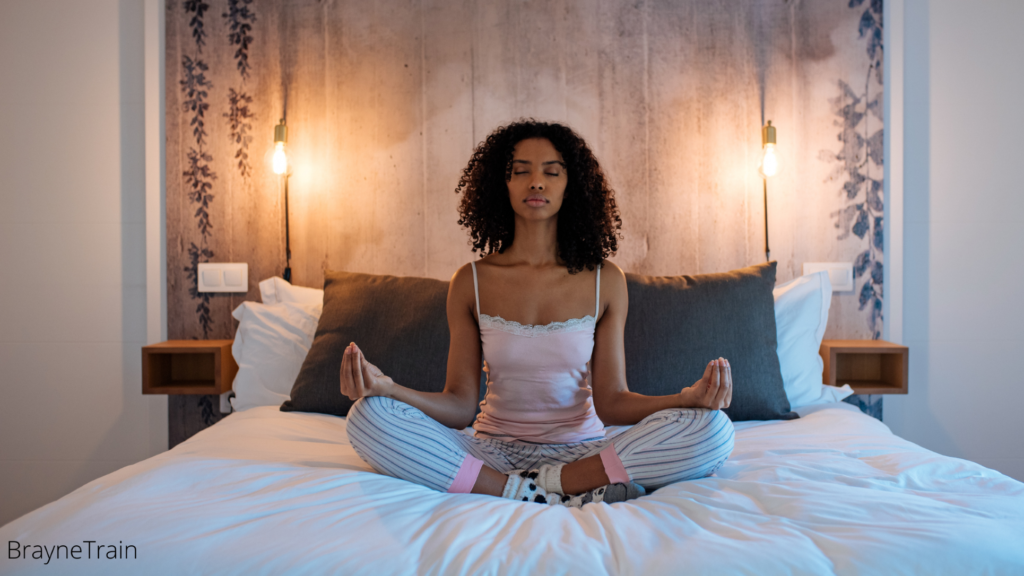
The last 10 minutes before falling asleep are some of the most important minutes of the day.
Many experts recommend using the last 10-15 minutes before sleep for meditation & visualization. This can help reduce anxiety and promote positive thinking.
To learn about how just 5 minutes of meditation can reduce anxiety click here.
By closing your eyes and taking a few minutes to focus on your breath and relax your body before falling asleep, you can help ease anxiety and cultivate a more restful state of mind.
Additionally, some people find it helpful to do affirmations before sleep.
Repeating positive statements such as “I am calm, I am safe, I am at peace” or “I invite peace and serenity into my space” can help program your mind for a great night’s sleep.
Pro Tip:
Do not read in bed. Reading in bed can make your brain associate your bed with wakefulness (paired association) thus making it harder to fall asleep.
Bottom Line:
Having a good nightly routine is just as important as a morning routine. A good night’s sleep is crucial for physical and mental health. So if you want to sleep better, try the tips and tricks we provided you in this post. Thanks for reading!




